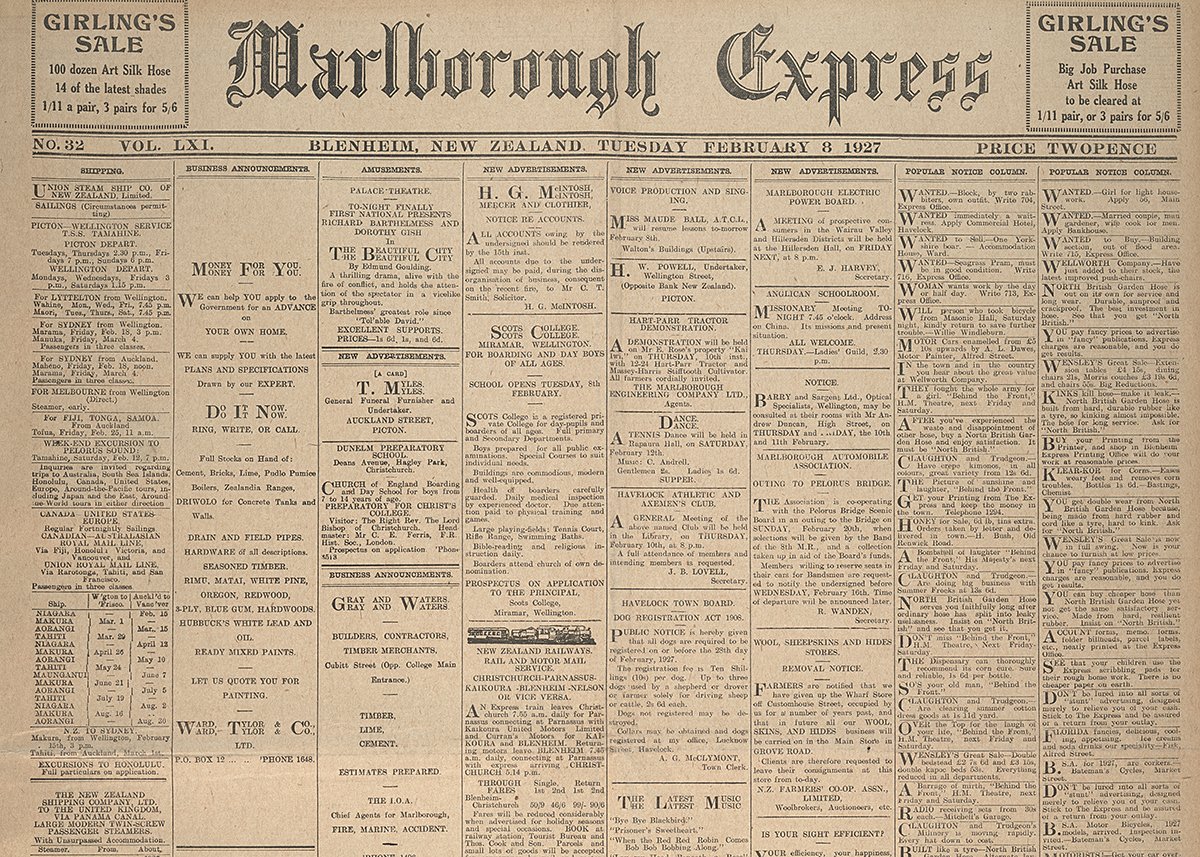A Kōrero with Local Dunedin History Teachers
One of the trust’s key aims is to preserve digitised local newspaper content that will be of use in schools and other educational settings. Although newspapers on sites such as Papers Past are accessed by all manner of people, they are a valuable resource for teachers and are often the first place school students look when researching New Zealand’s past.
As a newly co-opted trust board member, Lachy met up with some Dunedin high-school history teachers last month for a kōrero, first about what the trust was doing, and then to get some data on how the teachers and their students use online sources in their teaching and learning practice. Although not all history teachers in the city could make it, we had eight teachers from Bayfield High School, Columba College, John McGlashen College, Kaikorai Valley College, Logan Park High School, Otago Girls High School and Queens High School.
Now Online – Otago Witness Illustrated supplements
The new, improved Otago Witness illustrated supplements are coming to a screen near you! The Preserving Local History and Educational Trust will replace murky, low-quality digitised photographs with high-quality scans from the original paper copies, preserving their historical value. The supplements, filled with significant images of places, people, and events, offer a window into New Zealand's past, making them a valuable resource. While Papers Past will soon integrate the new images, they will also be available on the Trust’s Recollect site.
Preserving Community Memory — Digitising the Marlborough Express
The Preserving Local History and Educational Trust is digitising historical newspapers in partnership with the National Library of New Zealand and NZMS. The Marlborough Express, which holds a rich history dating back to 1866, is one of the newspapers being digitised.
In this blog, Steve Austin, the former Executive Director of the Marlborough Museum, highlights the importance of historical newspapers as the "first draft of history." Digitisation not only preserves these newspapers but also makes them more accessible to researchers, students, and family historians.



